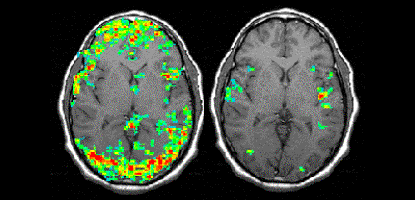|
Automatic
Processing
Automaticity
- Information can also be processed with little or no allocation
of attention resources. This phenomenon is termed "automaticity"
or automatic processing. When skills are learned to the point of
automaticity, the load on working memory typically is reduced by
90%.* This occurs after extensive practice of a task so that, literally,
it can be performed "without thought." Keyboarding is
an example, when it can be performed without "thought"
as to the position of the keys. Driving is another example, although
"automaticity" in driving can lead to unforeseen occurrences
such as when you intend to drive to a friend's house after work
and find that you have arrived at your home instead!
Tasks
learned to the point of "automaticity" are not easily
changed by conscious control. An example is when you are used to
driving a car with the shift on the floor and then rent a car with
the shift on the column. You find yourself continuing to reach for
the floor shift. This
"downside" of automaticity must be considered carefully
in the design or modification of safety critical controls. If one
is "used to" a specific position and means of activation
of a control, moving that control or changing its means of activation
could result in the loss of critical seconds in response to an emergency.
 |
| |
After
Skill Automaticity |
fMRIs - Differences in Brain Activation
Transition from Working Memory & Attentional Control to
Sensory & Motor Processing*
|
Typically,
skills learned to the point of automaticity are also difficult to
describe. For example, once you have learned to ride a bicycle you
have learned the skill for life, and it is difficult to describe
to someone else how it is accomplished.
*Schneider,
W. (2003), "Automaticity in complex cognition," Center
for Cognitive Brain Imaging at Carnegie Mellon University.
|










